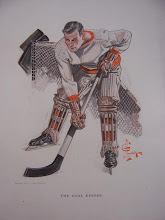
Boston, overcast but pleasant.
Brynne went bobbing across Route 1A, her golden blond locks sprouting from beneath her cycling helmet, her trusty two-wheeler by her side. I hovered over the crosswalk like some surly gargoyle. With her over-stuffed backpack sagging off her shoulders, Brynne swung a leg over the saddle, and started pedaling down the sidewalk.
"I love you," I shouted. "Be careful."
"Love you too, Daddy," said my 10-year-old with a wave of her hand. And she was gone.
I was a wreck. Brynne's elementary school is only a mile away, and there's a police officer at the far crosswalk. This is not a high-risk operation. Yet my stomach was in knots as I walked back home. The juxtaposition between Brynne's joy at her unfettered freedom and my own fretful misery was jarring.
Brynne is my baby, though she would cringe at that description. She's always had a healthy-if-inflated sense of her abilities (the morning she tried cooking omelets when she was all of 5-years-old springs to mind), and sometimes gets in over her head. She's our daredevil. MaryAlyssa, her older sister, is more cautious. Brynne often acts first, thinks second. It's a trait that gives parents gray hair, quickly.
My wife, Lauri, always wanted kids. Never a doubt, and I admired that kind of raw, primitive drive. I, on the other hand, needed convincing. In part, I feared parenthood because I feared this moment. It is the fear of letting go, letting my child loose into the world. I'm not sure where that sense of dread comes from, to be honest. Maybe from losing my dad before I became a teenager, or maybe it's the freshly unearthed memories of my own reckless youth. I remember pedaling through a stop sign., having too much fun going too fast, and forcing some poor, startled woman in a huge station wagon to slam on the brakes. I can still see her face, her eyes practically popping out of their sockets. Maybe my reticence is the result from too many years as a newspaper reporter, when tragedy was part of our daily milieu.
This moment, I knew, was a pristine example of why my mom relied so heavily on her faith. Mom, widowed at 40, raised six of us, and our childish indiscretions must have weighed heavily on her. She knew that parenting, from conception forward, is a constant leap of faith. She often told me: "You let your children go as they grow, but you never stop being a parent."
You prepare your progeny as best you can, and then you bid them adieu, sharing in their bliss as well as their sorrow. Watching Brynne ride off without me was just another reminder.
Best,
-Brion
PS ... A special "Thanks!" to our young neighborhood paparazzi, Charlotte Goodwin, for this wonderful portrait of my Brynne!


